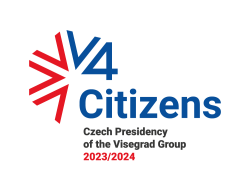
| Thu | Fri | Sat | Sun | Mon |
|---|---|---|---|---|
| 8 | 10 | 9 | 6 | 9 |
| Thu | Fri | Sat | Sun | Mon |
|---|---|---|---|---|
| 11 | 9 | 7 | 9 | 9 |
| Thu | Fri | Sat | Sun | Mon |
|---|---|---|---|---|
| 12 | 11 | 11 | 10 | 10 |
| Thu | Fri | Sat | Sun | Mon |
|---|---|---|---|---|
| 14 | 14 | 13 | 12 | 12 |
It is worth talking to people
While Arabs or Muslims might be the focus of the current wave of Czech xenophobic discourse, the anti-Gypsyism from days past has not completely disappeared, as recent media debates illustrate. A Czech university professor with roots in The Caucasus shares an early memory about his first time visiting Prague and meeting the Roma and Czechs.
Just as elsewhere in Europe, the ongoing migration crisis has sparked heated debates in the Czech Republic, spurring xenophobia and racism. And while fear of Middle Easterners as culturally alien has been at the center of these sentiments, an older anti-Gypsy racism is also still with us.
I visited Prague for the first time in the autumn of 1993. The family of my Yerevan aunt had moved here to a prefab block of flats in Řepy only a few months earlier.
One evening we went out to sit in a park in front of her house. A Roma family was sitting on one of the closest benches, a number of the next benches were empty, and the far-away benches were occupied by “whites”. Without giving it much thought, we sat right next to the Roma family; perhaps because the bench next to them was the closest to my relatives’ flat.
A Roma teenager was playing loud rap music on his stereo. After only a minute we spontaneously and with broken Czech asked him to turn it down. Immediately afterwards, his whole family jumped at him, telling him to turn the stereo off completely, which he did. We started talking with them and discovered they lived in the same building; they were nice people.
After that encounter, they would greet us from far away, or run up to open the building’s door each time they saw us coming back home. A few times they even helped us with heavy shopping bags. Each time they had grateful expression on their faces. I was then a 14-year-old boy from Moscow, and I remember thinking that this was a sign that no one had been paying them much attention until then.
This is still one of the most vivid memories I have about my first visit to Prague.
Maybe we had been fortunate in our experience with the Roma – because since then I have listened to various, but mostly negative, opinions my Czech friends and acquaintances have regarding the Roma. Perhaps there is some worth in talking to people, and not fearing a potential confrontation.
I think that plenty of the negative experiences (or accumulative negative emotions) Czechs have towards the Roma is rooted in their inability to clearly express their opinion, be it in the spirit of agreement or disagreement. And this is not an issue of political correctness.
Read the original text in Visegrad Revue.
This article has been automatically generated from the Visegrad Revue webzine, a project funded by the International Visegrad Fund. The opinions expressed in this article do not necessarily have to represent the official position of the donor, the Visegrad Group, or the publisher (Democracy in Central Europe).







